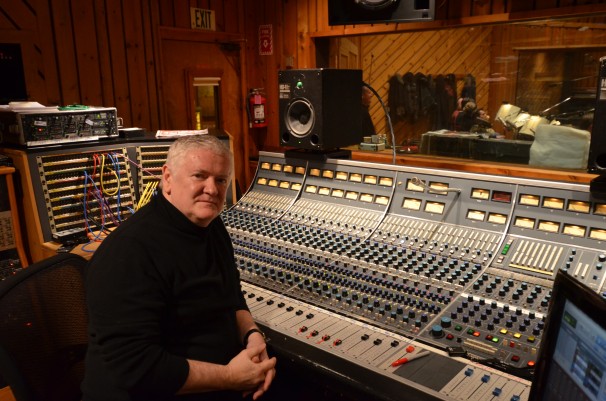
Jim Anderson, Tisch professor and award-winning recording engineer, was sitting in his Los Angeles hotel on the morning of Feb. 10, trying to write a Grammy acceptance speech. Hours later, in front of an audience of millions, Anderson took the stage at the 55th Grammy Awards to accept his 10th Grammy for Best Surround Sound Album for remixing singer/songwriter Patricia Barbara’s album, “Modern Cool.”
“I have spoken a lot for NYU, [and] at commencement you speak for 6,000 people, so once you’ve done that you can do anything,” Anderson said of his onstage experience. “Had I not [written things down] I probably would have just blanked completely.”
His 10th Grammy win marks the first time Anderson has won for his work on an album specifically.
“In the surround category all [the nominees have] a different approach and they are all valid,” Anderson said. “I’m just happy that we got recognized … I’m very proud of the album that we did.”
Anderson, who keeps all 10 Grammy awards in his office at the Clive Davis Institute of Recorded Music, has taken his love for producing music to the classroom. In addition to working on over 1,800 albums with various jazz, Latin and world music artists like Ron Carter and Gonzalo Rubalcaba over the past four decades, Anderson played an instrumental role in 2003 in pioneering the Clive Davis Institute at the Tisch School of the Arts. He served as the department chair from 2004 to 2008.
“Hiring Jim as the first chair of the Institute of Recorded Music was a collaborative adventure,” said Mary Schmidt Campbell, dean of the Tisch School of the Arts. “There had never been a discipline of recorded music, so we had to approach those early years with resilience, inventiveness and openness. Jim approached the adventure with a real pioneering spirit.”
Campbell also describes Anderson as an inquisitive artist by nature, one who pushes his students to reach beyond their comfort zones. In his Audio Ear Training for Producers class, Anderson teaches students the importance of being able to listen to a track, analyze it and become articulate in the music they hear.
“It’s a matter of educating both the ear, the brain and elevating the vocabulary that they use when it comes to sound,” Anderson said.
Tisch senior Phoebe Ryan, who has taken Anderson’s Engineering the Record, Audio Ear Training and Advanced Engineering courses, was at first intimidated by her award-winning professor, but she soon began to realize he had successfully transformed his expertise and passion for music into a teaching tool.
“Working with a Grammy Award winner, just in general, seemed pretty frightening to me at first,” Ryan said. “I was so worried about hitting the wrong buttons, saying the wrong thing … but luckily, Jim is the best and it’s actually a relief knowing I have him around to correct my mistakes.”
A version of this article was published in the Thursday, Feb. 28 print edition. Tanay Hudson is a contributing writer. Email her at [email protected].
























































































































































